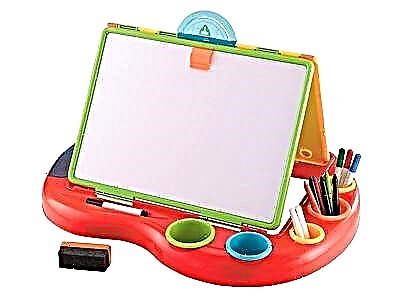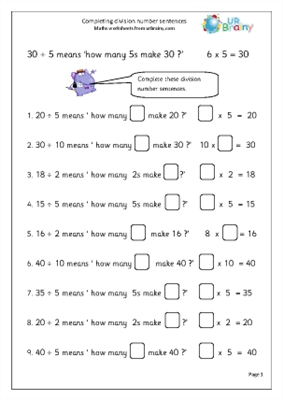
Rhinitis (runny nose) causes a lot of trouble for both adults and children. This disease is especially dangerous for children, since shortness of breath causes hypoxia, that is, a lack of oxygen in organs and tissues. It is worth treating a runny nose in babies quickly and at the same time you need to use modern, effective and safe means.

Release form
"Rinofluimucil" is available only in the form of a nasal spray, which is sold in dark glass vials with a special spray nozzle. The bottle has a volume of 10 ml.
The form of the spray is optimal for intranasal administration of the drug, especially in children, who, due to their age, are often unable to perform the necessary sucking-swallowing movements. In this case, some of the medicine flows out of the nasal passages, and the effectiveness of the treatment decreases.
However, instilling more medicines than recommended in the instructions for use is also dangerous: this can lead to overdose and related symptoms. In addition, children often do not like to bury medicines in their noses, because for this you need to lie down and fix your head so that the medicine gets to its intended purpose.

In the same time the spray is easy to use as it is inserted into the nose in an upright position, the child does not need to be laid down and taught to draw in liquid. The medicine from the nebulizer is evenly distributed over the nasal mucosa and immediately begins to work. In addition, the convenient nozzle with a dispenser ensures that only as much of the product as recommended by the doctor and the manufacturer of the medicine in the instructions gets into the child's nose.
It is convenient to use the spray at home, in the car, in the children's clinic, on the playground - wherever there is a need for it. The sprayer is protected by a cap from dust and other possible contamination.


Composition
Solution in spray "Rinofluimucil" contains active and auxiliary components. Two substances are active: acetylcysteine and tuaminoheptane sulfate. Each 100 ml of solution contains 1 and 0.5 mg of these components, respectively.
Acetylcysteine has a mucolytic effect, therefore, in the composition of the spray, it helps to liquefy the contents accumulated in the nasal passages and lateral appendages and to remove it.
Tuaminoheptane eliminates excessive redness and swelling of the nasal mucosa. This is a little-known and rather rarely used adrenergic agonist, which has all the properties of substances that are actively used for the production of drugs against the common cold. It constricts blood vessels, reduces swelling and redness in the nasal cavity, and makes breathing easier.

Due to the short period of action, tuaminoheptane is not used in the production of monopreparations, that is, drugs with one active ingredient. In combination with acetylcysteine, tuaminoheptane works effectively, which is the reason for the high therapeutic effect of the spray "Rinofluimucil".
Modern drugs are complex chemical compounds, so they include not only active ingredients, but also auxiliary components. These are mainly stabilizers and preservatives that keep the drug formula stable and the drug effective throughout the shelf life.
Rinofluimtsucil contains the preservative disodium edetate, sodium dihydrogen phosphate - a buffer food additive, sorbitol 70% - a sugar substitute, and benzalkonium chloride - an aseptic drug that also has an antifungal effect, mint flavor, a small amount of ethanol and purified water.

Indications
Due to the unique combination of active ingredients, "Rinofluimucil" is prescribed for children with various types of rhinitis. The drug can be used immediately after a runny nose appears, and also if the discharge from the nose becomes thicker and contains a purulent-mucous secretion, and the child develops a so-called yellow rhinitis.
With a green runny nose, that is, when the discharge turns greenish due to the presence in it of substances that the immune system produces to protect against infection or a virus, "Rinofluimucil" is no less effective.
In this case, it is important to use the drug correctly, since the greenish color of the discharge indicates a severe course of the disease, the presence of a virus or infection in the body, or the onset of any complication.

This drug is prescribed not only for a cold, but also for:
- nasal congestion to prevent the disease from developing;
- with sinusitis - inflammation of the mucous membrane of the maxillary sinus;
- with adenoids - proliferation of the nasopharyngeal tonsil;
- with adenoiditis - diseases in which the increase and inflammation of the adenoids is accompanied by pain, fever, redness;
- with sinusitis - inflammation of the mucous membrane of one or more sinuses;
- with otitis media - inflammation of the middle ear as part of complex therapy.
Often these diseases follow one after another or develop at the same time, since they are the result of deep penetration of an infection or virus into the child's body.
In addition, the spray "Rinofluimucil" for cough helps in cases when it occurs with an active course along the back wall of the head, and in cases where the cause of the common cold is an allergy. Allergens can also invade the nasal mucosa, irritate it, causing swelling and redness, resulting in congestion and runny nose.
Sometimes parents believe that a runny nose does not need to be treated, it will go away on its own. Rhinitis is a very common symptom of flu and colds, but this does not mean that a runny nose is a harmless condition. The fact is that difficulty breathing not only reduces the quality of life of a child who is forced to breathe through the mouth for a long time, which disrupts normal physiological processes, but also dries the oral mucosa, contributes to the faster penetration of viruses into the body.

Difficulty breathing with a runny nose can lead to tissue overgrowth, such as adenoids.
With nasal congestion, the child cannot fully breathe, less air enters his body, and, therefore, less oxygen, the lack of which in medicine is called hypoxia. This is a very dangerous condition, from which all organs and tissues of the body suffer, but to a greater extent the brain and heart.
Doctors recommend starting to treat a cold as soon as it appears, without waiting for complications. But this must be done correctly and after consultation with the attending physician, who will prescribe adequate medications for the treatment of the child.

The spray is better than drops, irrigates the mucous membrane, is able to stay in the nasal cavity longer and penetrate deeper. This greatly enhances its effect. "Rinofluimucil" constricts blood vessels and eliminates puffiness, neutralizes toxins that are released during the vital activity of viruses and bacteria, and also liquefies secretions, contributing to its rapid removal from the nasal cavity.

At what age is it prescribed?
The instructions for use of "Rinofluimucil" give a clear indication. This drug is used for children aged 3 years and older. This means that during the clinical trials of the drug "Rinofluimucil" was tested on children of the appropriate age, and the manufacturer can guarantee not only the effectiveness, but also the safety of the treatment.
In young children, many physiological and biochemical processes in the body proceed differently than in adults or older children. Therefore, when using the drug to treat a small child, for example, at 2 years old, one cannot be sure of its absolute safety. This means that side effects are more likely to appear, which will aggravate the child's condition rather than alleviate it. In some cases, these effects can be strong enough to necessitate hospitalization of the child.
In rare cases, for example, with advanced sinusitis, the doctor may prescribe Rinofluimucil for a child under 3 years old, but only on individual indications and under the strict supervision of a doctor, if the benefits of using the medication outweigh the harm it causes.
If the parents do not have the opportunity to consult with the attending physician and there is no medicine at hand in the required dosage for children, there is no need to risk and use the drug for a different age group. In this case, it is better to use folk methods to get rid of the common cold and use salt water for inhalation.

Contraindications
Like most drugs, Rinofluimucil spray has contraindications for use. They are associated with possible negative effects if the child has a chronic illness or is taking other medications.
So, spray "Rinofluimucil" is not used:
- if the child has individual sensitivity to components;
- with angle-closure glaucoma - a congenital or acquired eye disease in which the intraocular pressure is constantly increased;
- thyrotoxicosis, that is, an excess of thyroid hormones.


In some cases, these diseases run in parallel. A child of any age who is taking MAO inhibitors and tricyclic antidepressants, and also within 14 days after the last intake of these drugs, cannot be treated with Rinofluiucil.
In some chronic diseases, the use of "Rinofluimucil" is allowed with caution. Most often this means that treatment should be under the supervision of a physician. The manufacturer refers to such diseases as bronchial asthma, chronic high blood pressure, angina pectoris.

Side effects
If Rinofluimucil is taken correctly, side effects are very rare. Nevertheless, tuaminoheptane, which is one of the active ingredients of the drug, can cause such undesirable effects as increased blood pressure: often children complain of a headache that accompanies this condition. The child may develop anxiety, tremors of the limbs and head, tachycardia.
In addition, the drug can be addictive, therefore you need to observe the duration of the course of treatment prescribed in the instructions for use or follow the doctor's prescription.
In some cases, a local reaction occurs in the form of dryness of the mucous membrane of the nose, mouth or throat, as well as allergic skin reactions. Frequent use of the drug can lead to urinary retention.

If a child develops one or more of these symptoms, treatment with Rinofluimuciom should be discontinued and a doctor should be consulted.
Perhaps these manifestations are not associated with drug treatment, then the treatment can be continued. Otherwise, the doctor will advise which analogue the medicine can be replaced with. It's not worth choosing an analogue yourselfbecause the new drug may contain the same component to which the reaction occurred.
Sometimes the manifestations of side effects are quite strong, requiring not only discontinuation of the drug, but also drug treatment. For example, if a child develops an itching or rash, the doctor will prescribe an anti-allergenic medicine, and if the temperature rises, paracetamol syrup.

Overdose
An overdose of "Rinoflumucil" can occur simultaneously or in the form of a cumulative effect of the drug as a result of a longer intake than indicated in the instructions for use.
In the first case, the child may develop the same symptoms as with side effects, but more clearly and in a short period of time. The most correct action for parents, if they find that the child has taken "Rinofluimucil" inside, is to seek emergency medical help.

Depending on the individual indicators of the child, including age and body weight, obvious symptoms may not be observed. However, the child still needs to be shown to the doctor, since Rinofluimucil has a vasoconstrictor effect and in large volumes can be dangerous for children.
In the second case, an overdose can not only lead to the development of the corresponding symptoms, but also cause addiction to the drug, that is, a condition in which new doses of the drug do not have the desired effect on the child's body.
If you suspect an overdose, you should immediately stop taking the medication, call a doctor and consult about possible options for replacing the drug. Remember that you cannot often use Rinofluimucil to treat children.

Instructions for use
Before the first use, the spray must be taken out of the package, the protective cap must be removed from the bottle itself, and then another one must be removed from the spray bottle. The second cap must be saved and the spray bottle closed again after using the spray. This will protect it from dust and dirt.
After that, you need to open the lid of the sprayer and press it several times until splashes appear, which will mean that the spray is ready for use. The Rinofluimucil sprayer is equipped with a dispenser, therefore one dose of medicine corresponds to one press on the nebulizer.
The instructions for use contain a recommendation to prescribe the application of the spray 3-4 times a day as needed. You need to enter one dose of spray. In general, the course of treatment is no more than 7 days and, on the recommendation of a doctor, it can be extended.


For children under 3 years of age, Rinofluimucil is used only as directed by a doctor in the dosages prescribed by him. At the age of 6, you can start treatment with Rinofluimucil as soon as a runny nose appears.
Interaction with other drugs
Many modern complex drugs for influenza and colds, including nasal drops and sprays, are incompatible with taking MAO inhibitors and tricyclic antidepressants. These specific medications are rarely prescribed to children, however, parents need to be careful and be sure to warn the doctor if another specialist prescribed antidepressants. When taken at the same time, the severity of side effects increases and the likelihood of their occurrence increases.
In addition, during clinical trials of Rinofluimucil, its ability to significantly weaken the effect of drugs used at high blood pressure was revealed. In this way, the spray can not only lead to an increase in pressure, but also neutralize the effect of a lowering drug.

Terms of sale and storage
Spray "Rinofluimucil" is sold in pharmacies without a prescription. In a closed form, it can be stored for 2.5 years, but only if the conditions are met: the air temperature should not be below 15 and above 25? C. If the bottle has been opened, then it can only be used within 20 days.
Do not use the drug after the expiration date.

Reviews
Numerous reviews of parents about the use of "Rinofluimucil" indicate the high effectiveness of the drug even with advanced or chronic rhinitis, sinusitis and other diseases of the nasopharynx, the symptoms of which are nasal congestion.
The European manufacturer of the drug is trusted by consumers, and the low price adds to its popularity. The spray in Moscow costs on average a little less than 300 rubles, and one bottle is enough for a week's course of treatment. In addition, Rinofluimucil is suitable not only for children over 3 years old, but also for adults, so you can buy one medicine for the whole family.
"Rinofluimucil" has a pleasant mint smell, does not taste bitter, so children use it with pleasure.

As an expert opinion on the use of vasoconstrictor drugs, which include "Rinofluimucil", one can cite the opinion of Dr. Komarovsky. There are effective drugs for the treatment of rhinitis in children; these are a number of vasoconstrictor drugs. However, for safe use, certain rules must be followed.
So, Dr. Komarovsky advises in no case exceed the recommended dosages and duration of treatment, since this can cause the development of addiction to the drug, use only special children's forms of drugs and remember that many vasoconstrictor drugs are contraindicated in young children.

Analogs
There are no analogues of Rinofluimucil for both active ingredients - acetylcysteine and tuaminoheptane. With this combination of active ingredients, only Rinoflumucil is produced.
However, in Russian pharmacies, nasal agents are widely represented, which are analogues of the drug in terms of therapeutic effects. Some of them are cheaper. These are such drugs as nasal drops "Adrianol", "Vibrocil" in the form of drops, gel or spray, "Malavit Spray Rino", "Rinostop", "Evkasent".
Also, the analogs of "Rinofluimucil" can be attributed to the drug "Polydex", which contains two antibiotics and has an anti-inflammatory effect. However, before using antibiotics in children, a doctor's consultation is not only desirable, but necessary. Addiction to this group of drugs, caused by uncontrolled and often unnecessary use, can be hard on during a serious illness, when antibiotic treatment will not give the desired effect. It is contraindicated to use Rinoluimucil together with Polydexa.
Another possible substitute for Rinofluimucilva is Isofra. This antibacterial agent also contains an antibiotic, therefore, although it is highly effective, you do not need to use it yourself. In addition, this medication is not always effective, for example, in cases where the common cold is caused by a viral infection. But it is impossible to use "Rinofluimucil" simultaneously with "Isofra".


Doctor Komarovsky will tell you about a cold and the medications necessary for this in the next video.



